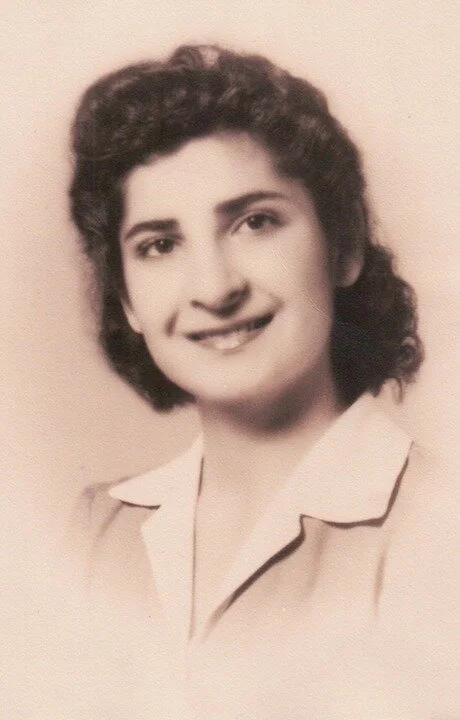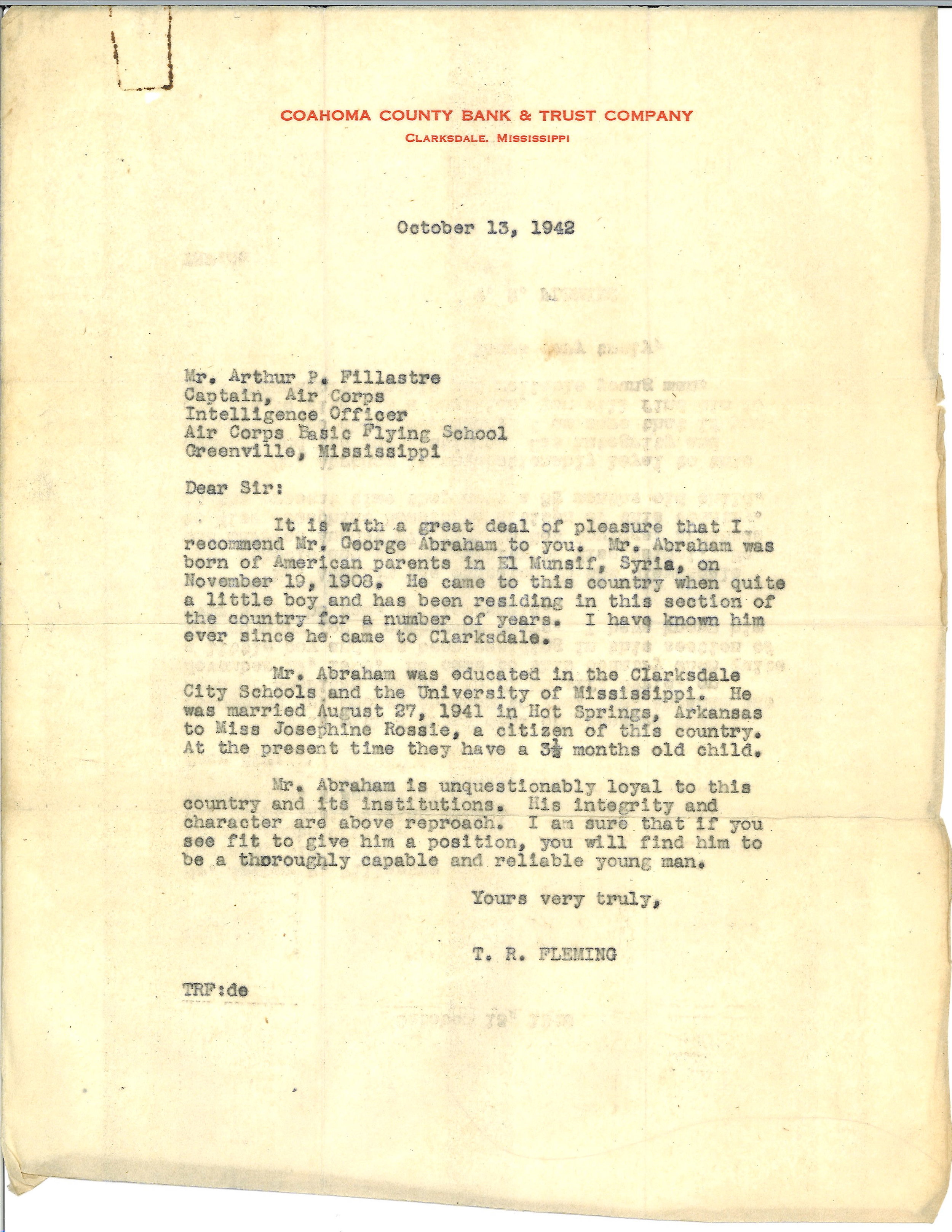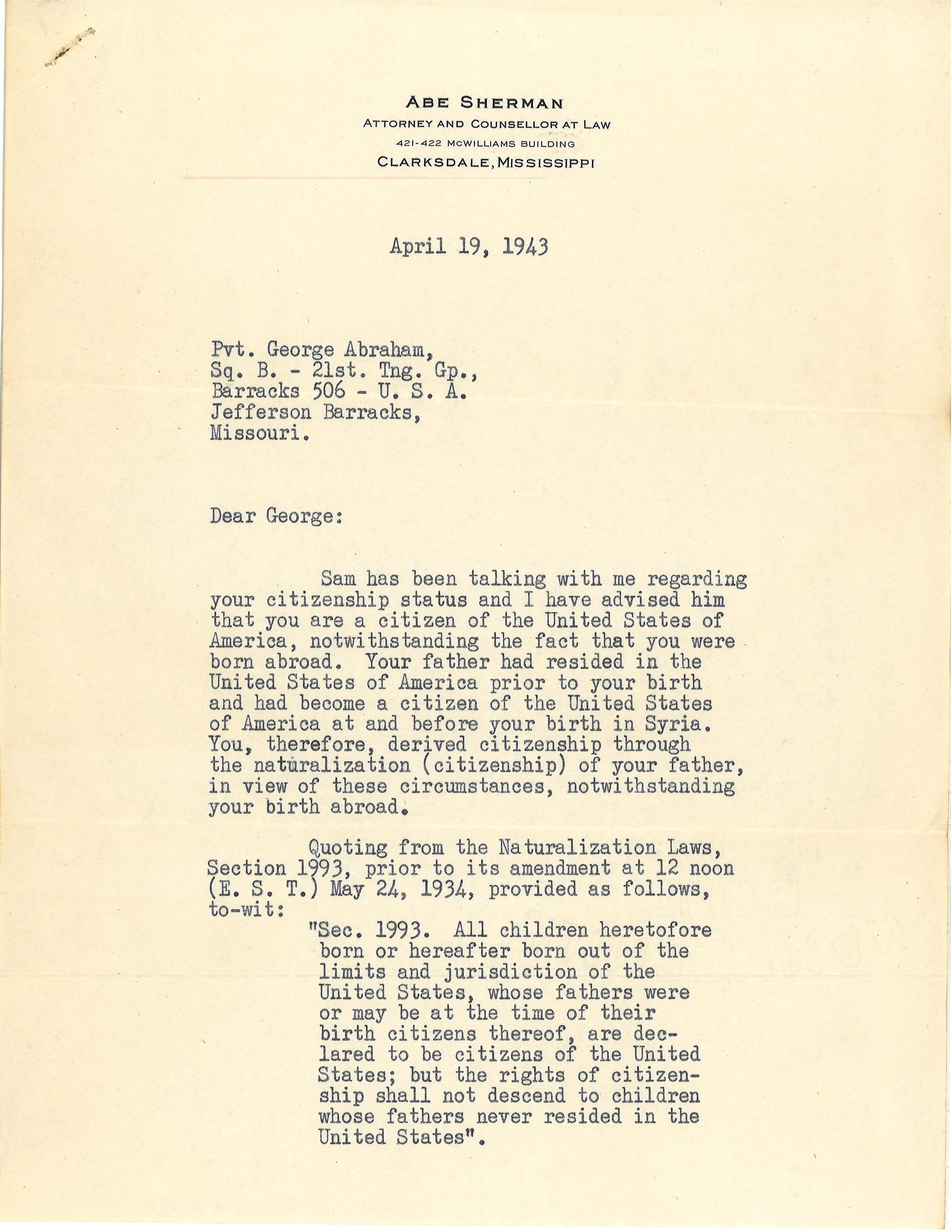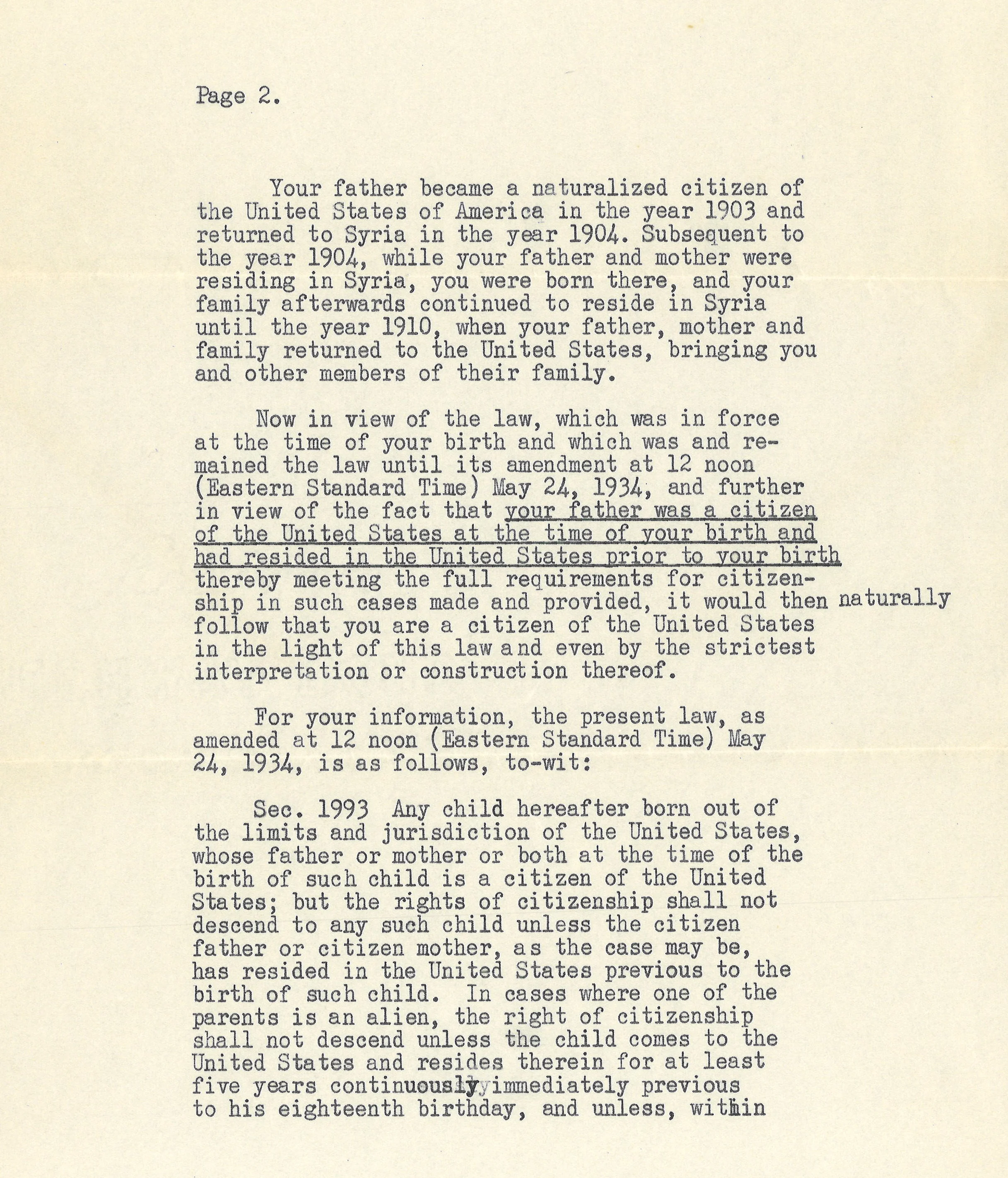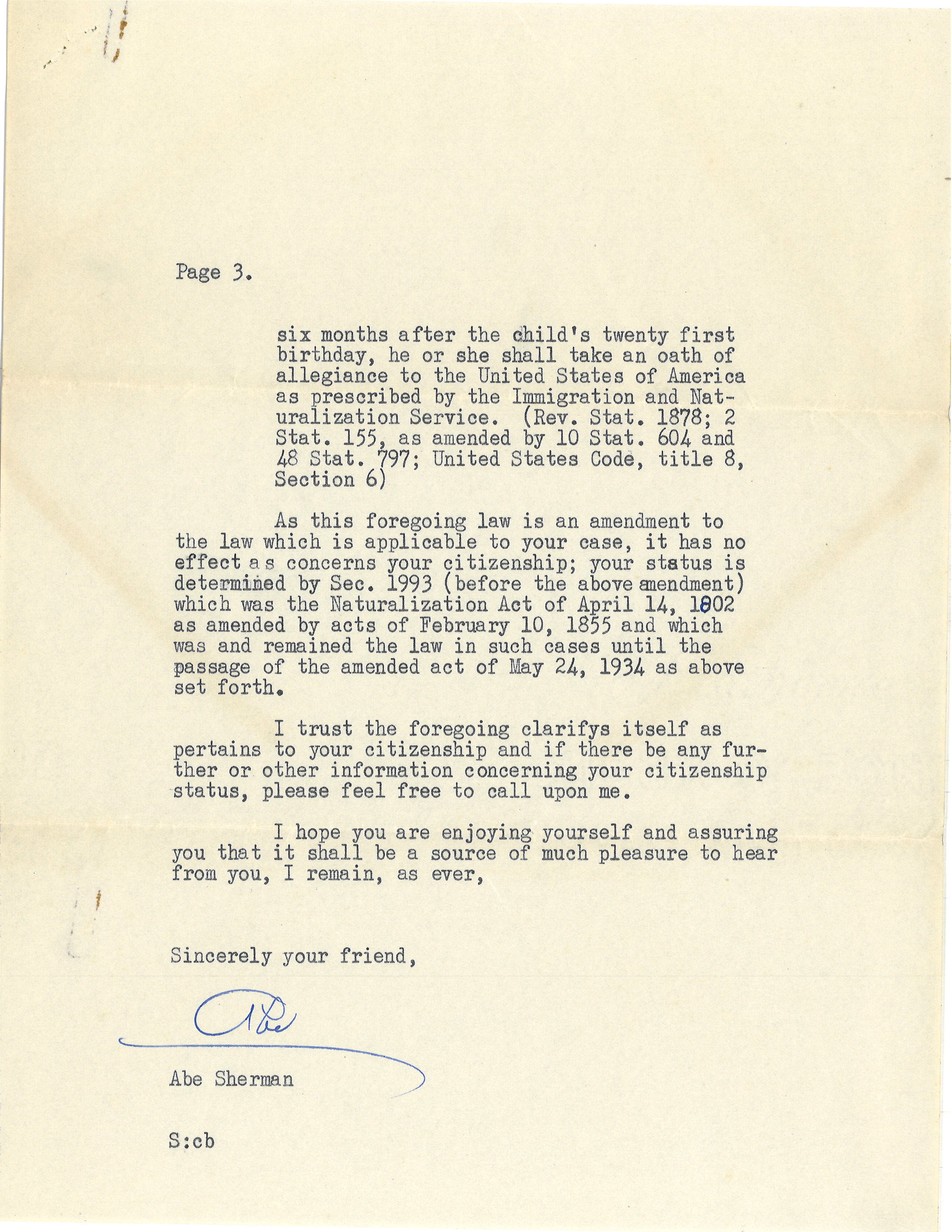Louise “We-z” Abraham Wilson
Clarksdale
Louise Abraham Wilson was born on January 16, 1922, in Clarksdale, Mississippi. Her father, Sam Abraham, from the town of El Munsif, Syria, first joined his brother Mike Abraham in Hermanville, Mississippi, in 1891. Her father became a US citizen in 1903 and returned to Syria in 1904, bringing Louise’s mother, Julia, and their children back to Mississippi in 1910.
Louise’s family moved to Clarksdale before she was born. Once they had made the move to this small Delta town, Sam Abraham opened a grocery store in the Riverton neighborhood, where they and other Lebanese families lived. In that store “Poppa used to read mail in Arabic for Lebanese people who couldn’t read English,” she recalled. “They would bring their mail to the store, and he would read it for them.” There at Abraham Grocery her father “would have extra help on Saturdays. He would take people home because they didn’t have cars,” she said. “Sometimes he wouldn’t charge them if they bought a lot of groceries, but he would have someone take them home.”
When Louise was a child, the youngest of three boys and six girls, the Abraham family primarily socialized with other Lebanese families, such as the Rossi, Shamoun, and Tonos families. “Lebanese used to visit all the time,” she remembered. “Played cards.” Lebanese men played a lot of poker, but the women mostly played bridge and Rook, another then-popular card game. In the springtime and summers, especially on July Fourth, Lebanese families gathered together outdoors: “They would take us to Moon Lake and have a picnic,” and both Lebanese and southern food was always on the menu. “Everybody brought food, and they just made a big day of it.”
Louise “We-z” Wilson
At home, Abraham women made traditional Lebanese foods, including laban (a homemade yogurt), baklawa dessert pastry, sesame candy with figs and dates, and Syrian bread. Of course, there was always kibbie on Sundays. “Although we’d make kibbie everyday really, we always had it on Sunday,” Louise said. But it wasn’t just the Lebanese women in the household who cooked for the family. “We always had a maid, because Mama helped Daddy in the store,” she recalled. “So we did have good food American style, but then we always had the kibbie and stuff. Lula helped my grandmother, and she knew how to cook everything because she was there all day.” As a result, African American women in the early and middle decades of the twentieth century learned to cook Middle Eastern dishes, and Lebanese women learned to cook southern food.
Louise, known as “We-z” to her friends, later married Frank Wilson, a non-Lebanese man, whose father was part owner in Delta Packing Company, where Louise was working at the time. “He was American, he was. But he loved the Lebanese people.” Louise and Frank’s grandchildren and great-grandchildren called him Papa, but for Louise they used the traditional word for grandmother: Sitti.
This interview with Louise Wilson took place in her home in Clarksdale, Mississippi on February 2, 2018. Mrs. Wilson’s niece, Georgia Abraham Wilson, was also present for the interview and can be heard in the following audio selections. The photo (above) is courtesy John Bobo, Louise Wilson’s great-nephew.
Louise Abraham Wilson passed away on May 2, 2019.
AUDIO (Click to listen):
In this audio clip, Louise Abraham Wilson, with her niece Georgia Wilson, recalls the prevalence and importance of food to the Lebanese community in Clarksdale. Seema (Boolos), referenced in the audio, is Louise’s sister.
Most Lebanese immigrants to Mississippi were more or less fluent in speaking English, but many continued to speak Arabic in the home. Louise recalls her parents speaking Arabic at home with Lebanese friends and family.
Silk production was a significant industry in the Mount Lebanon region of Syria in the late 1800s. Here Louise remembers her mother talking about working with silkworms on the Mountain.
IMAGES (CLICK TO ENLARGE):
These documents are from the personal collection of Georgia Wilson, whose father, George Abraham, Louise’s brother, is referenced within.
The first document, dated October 13, 1942, is a letter of recommendation from T. R. Fleming, assistant cashier at Coahoma County Bank & Trust in Clarksdale, to Capt. Arthur Fillastre of the Air Corps Basic Flying School in Greenville. Note that Fleming remarks upon Abraham’s immigrant background and his loyalty to country in addition to his integrity and character. Letters like these, which highlight the loyalty to country of non-white immigrant citizens, were not uncommon, or altogether unnecessary, in the decades prior to the Second World War.
In the second document, dated April 19, 1943, and addressed to now Pvt. George Abraham, attorney and counselor of law Abe Sherman, of Lebanese heritage, advises Abraham of his citizen status, despite having been born in El Munsif, Lebanon.

